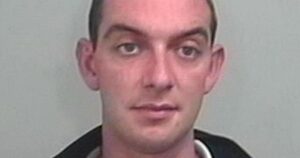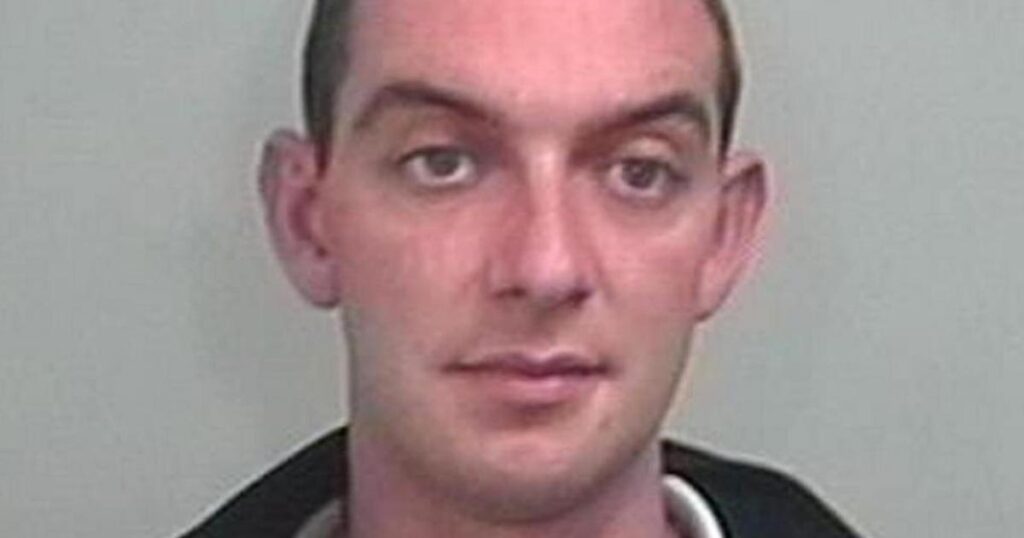Glaswegian Colin Campbell, formerly known as Colin Norris, was convicted in 2008 of murdering four elderly women and attempting to murder a fifth while working as a nurse at hospitals in Leeds.
But the Court of Appeal has heard that new expert knowledge may mean the former nurse’s conviction is unsafe.
READ MORE: Two people rushed to hospital after bus mounted the pavement
He was accused of injecting the patients with insulin, causing sudden and severe hypoglycaemia.
The victims—Doris Ludlam, Bridget Bourke, Irene Crookes, and Ethel Hall—were all patients in orthopaedic wards at Leeds General Infirmary and St James’ Hospital in 2002.
Vera Wilby, who survived, was the subject of the attempted murder charge.
Despite the conviction and a minimum 30-year life sentence handed down after a five-month trial involving 20 expert witnesses, new evidence has prompted the Court of Appeal to re-examine the safety of the verdict.
Speaking to STV News, Campbell’s mother, June Morrison, reiterated her belief in her son’s innocence.
She said: “We have never believed that he is guilty of any of this,” she said.
“We have always believed these women were not murdered. There were other things going on with their health. They had a lot of underlying conditions.
“Whatever decision is made about Colin, it affects the whole of our family. It affects the rest of our lives. If it does not go the way we want it to, we are going to have to start thinking about another campaign because we cannot just stop there.
“We need to keep fighting. I think we can appeal against this appeal, but again, you have to go through the process of having new evidence or new arguments.
“I have not been able to sleep because of the stress. I am not eating properly. He is on my mind constantly. When I do sleep, I wake up thinking about Colin.”
The judges – Lady Justice Macur, Sir Stephen Irwin and Mr Justice Picken – will now retire to consider their verdict on whether the evidence that led to Colin’s conviction was unsafe.
June said: “It still doesn’t feel as if it’s real. It is a scary time. We are hopeful as well, but it has been quite frightening at times. You are left feeling, is this finally it?
“Is this nightmare that we have been going through for over 17 years finally ending? It has been going on for longer than that, but Colin has been in prison for 17 years.”
Colin has been serving life imprisonment at HMP Frankland in County Durham since an investigation concluded that the women in his care developed unexplained severe hypoglycaemia while in hospital.
June added: “A lot of these families they believed that their loved ones died naturally, and then they were told there was a nurse who had murdered them.
“Me as a mother, I know my son is not capable of anything at that. It breaks my heart to think of these families and what they are going through.
“There are no winners. Because at the end of the day, if and when my son gets released, they are going to have to go through the process again, of if my mother wasn’t murdered, what are they to believe? I can’t think for other families but for myself; no one wins.”
“I do think nurses need better protection in court. Some kind of expert who can represent them in court because they don’t have anything at the moment.
“They do have professional bodies, but practising nurses on wards need something more to help, to ensure that no other nurse or family has to go through this again.”
READ MORE: Teen charged with ‘attempted murder’ after boy rushed to hospital
While the court was off, June went down to Durham to see Colin in prison.
She said: “I think he is just taking things day by day and hoping.
“What is it they say? Prepare for the worst and hope for the best. This is what we’re hoping for.
“I know the trial and a hearing are totally different, but being down in London, sitting on the court benches, it brings it all back. Colin is not there. He is on a TV screen, so it is just a small picture that I can see.
“During the trial, I couldn’t see Colin either because there was a screen between us. If I looked up, I could just see him. When you hear from the prosecution experts and they start saying ‘my opinion is’, it does take you right back.
“I have allowed myself to have thoughts of ‘when he gets out, what we could do?’ That is all a challenge. I have also had thoughts of ‘what if he doesn’t get out?’ How do we start campaigning again? Who do we get on board? What happens with the legal team?
“All that goes through your mind, but at the moment, I just get through the day. Coming into this, as a family, we had never been in trouble with the police.
“We never had any dealings with courts or anything like that, so it was hard to accept this was what was going to be happening for the next few years.“
Campbell has consistently denied any wrongdoing and maintains he never administered insulin to any patient.
His first appeal in 2009 was unsuccessful, and he applied to the Criminal Cases Review Commission (CCRC) in 2011.
In February 2021, the CCRC referred his conviction to the Court of Appeal, citing new medical evidence that presents a “real possibility” that the verdicts are unsafe.
The review concluded that natural causes could explain the hypoglycaemia in all four deceased patients, with the possible exception of Ethel Hall.
READ MORE: Urgent search launched for missing teen who may have travelled to Birmingham
In written submissions, James Curtis KC said the jury in Campbell’s trial had the “exceptional assistance of a meticulous, systematic and detailed summing up” from the judge.
He added: “They were provided with the necessary relevant facts and issues, from a plethora of highly qualified and clinically experienced witnesses.
“The judge carefully summarised and explained these, and accurately directed the jury as to how to approach them.”
Michael Mansfield KC told the court on Thursday that Campbell’s appeal is a “straightforward case”, and that judges “must conclude that these convictions are unsafe.”





